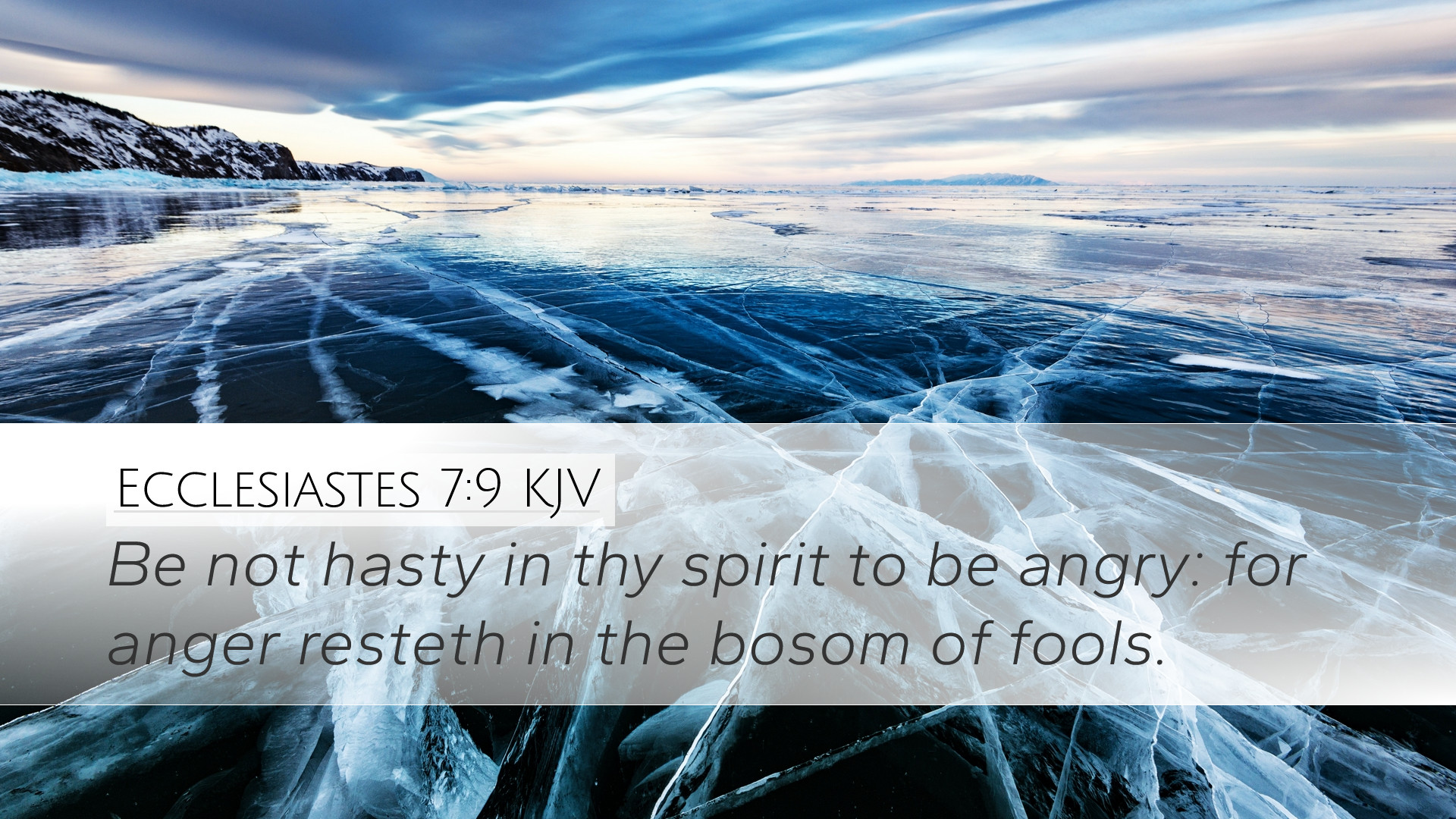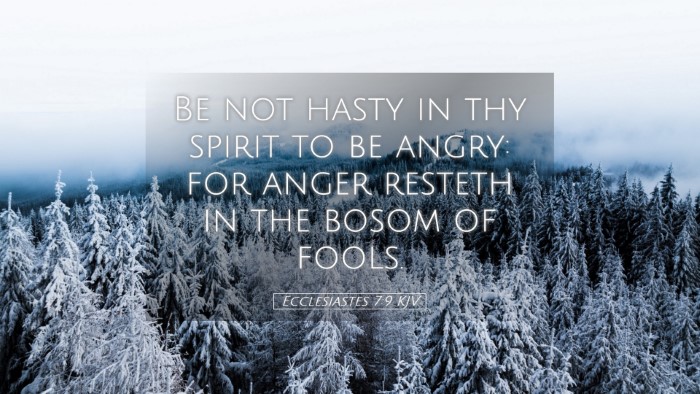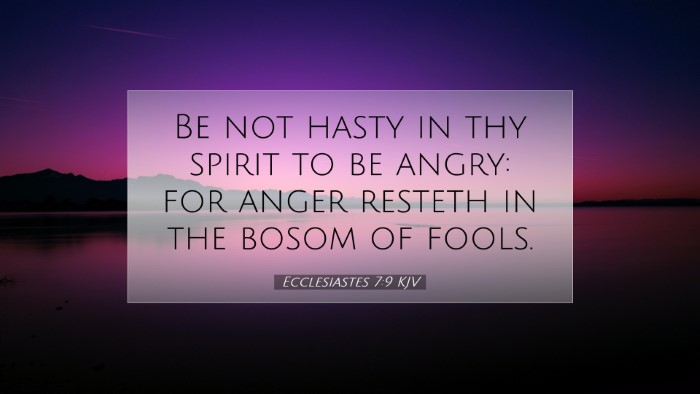Commentary on Ecclesiastes 7:9
Verse: "Be not hasty in thy spirit to be angry: for anger resteth in the bosom of fools." (Ecclesiastes 7:9, KJV)
Overview
The book of Ecclesiastes, traditionally attributed to Solomon, reflects on the meaning of life and the futility of worldly pursuits. The seventh chapter, where this verse is located, presents a series of proverbs that convey wisdom regarding life’s challenges and human emotions. Ecclesiastes 7:9 serves as a poignant reminder of the dangers of succumbing to anger.
Insights from Matthew Henry
Matthew Henry emphasizes the importance of self-control and the need for patience in dealing with frustrations. He notes that:
- Anger’s Danger: Anger can lead to irrational decisions and behaviors that may have long-lasting consequences. It is a passion that, if unchecked, can dominate the mind and lead one away from reason.
- Fools and Their Folly: The phrase "resteth in the bosom of fools" highlights that foolish individuals harbor anger, which suggests an inclination towards strife and conflict rather than wisdom and understanding.
- Reflection over Reaction: Henry advocates for a thoughtful response to provocation instead of a quick reaction, urging readers to pause and reflect before acting, especially in heated moments.
Insights from Albert Barnes
Albert Barnes provides a critical analysis that delves into the implications of anger. He interprets the verse as follows:
- Hasty Anger: Barnes suggests that hasty anger is a sign of weakness and lack of character. He admonishes that one’s spirit should remain calm to navigate through life's challenges effectively.
- The Folly of Anger: He notes that anger is not merely an emotion but also a state of mind that occupies the heart of fools, leading them to act in ways detrimental to themselves and others. This state of being is juxtaposed with the wisdom of a prudent individual who seeks to understand rather than react.
- The Importance of Control: Barnes concludes that managing one's emotional responses is paramount to living a life grounded in wisdom and foresight, echoing the teachings of Proverbs and the importance of self-restraint.
Insights from Adam Clarke
Adam Clarke offers a deep theological insight into the nature of anger and its implications. His commentary includes:
- Spiritual Exhortation: Clarke presents the verse as a spiritual exhortation to guard one’s heart. He emphasizes the need for believers to cultivate a spirit of peace and patience instead of allowing anger to dwell within.
- Anger as a Barrier: He describes anger as a barrier that prevents constructive dialogue and healthy relationships. Clarke stresses that to grow spiritually, one must forsake quick-temperedness and practice forgiveness and understanding.
- The Contrast of Fools and the Wise: His analysis also draws a contrast between the wise, who carefully consider their responses, and the foolish, who are quick to anger and often regret their impulsive reactions.
Theological Implications
This verse highlights several theological implications for believers:
- Understanding Human Nature: Anger is part of the human experience, but the verse encourages believers to transcend their natural inclinations.
- Divine Wisdom: The teaching aligns with biblical wisdom literature, urging followers to seek God’s wisdom to manage their emotions.
- Moral Responsibility: Believers are called to be responsible for their emotional responses, reflecting Christ-like behavior even in the face of provocation.
Practical Applications
For pastors, students, theologians, and Bible scholars, applying the teachings of Ecclesiastes 7:9 can be transformative in various contexts:
- Personal Reflection: Encourage regular self-examination to identify triggers of anger and develop strategies for responding peacefully.
- Church Communities: Promote teachings on conflict resolution, emphasizing patience and understanding as tools for maintaining unity within congregations.
- Counseling and Guidance: In pastoral care, use this verse to guide individuals struggling with anger issues, helping them to understand the value of controlling their emotions.
Conclusion
Ecclesiastes 7:9 serves as a timeless reminder of the perils of unchecked anger and the wisdom found in restraint. By integrating the insights from Matthew Henry, Albert Barnes, and Adam Clarke, believers can gain a profound understanding of the verse’s implications and apply its teachings to enhance their spiritual lives.


